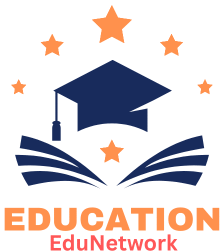Working with students who have exceptional needs and sharing your passion for education can make for a rewarding career as a consultant in special education. Institutions are increasingly seeking expert guidance on how to best meet the needs of diverse student bodies, which is driving up demand for certified special education consultants. This comprehensive guide will teach readers everything they need to know about special education consultants, including their roles, responsibilities, certification requirements, job prospects, and how to get the best jobs in the field.
Are You Looking For A Job As A Special Education Consultant?
Consultants in special education collaborate with educational institutions, faculty, and parents to improve the academic outcomes for students with disabilities and other special needs. These experts play a crucial role in developing IEPs, identifying student needs, and ensuring compliance with federal and state education regulations.
Consultants, in contrast to permanent special education teachers, may collaborate with many institutional entities. Companies that employ them could be sole proprietorships, consultancies, or even educational institutions. Their fundamental goal is to support inclusive education and help schools implement effective solutions for kids with emotional, behavioural, physical, or learning challenges.
Initial Responsibilities of a Consultant for Special Education
Typical responsibilities of a special education consultant in the workplace include:
-
Evaluate the present special education programs and provide recommendations for improvements.
-
Developing Individualised Education Programs: Collaborate with educators and parents to create and revise IEPs.
-
Instruction and professional development opportunities for teachers of both general and special education should be a priority in teacher preparation programs.
-
Check that schools are following all relevant regulations, including the Individuals with Disabilities Education Act (IDEA).
-
Help with academic, behavioural, and cognitive assessments for students.
-
Advocating for Families: Educate families about their rights and options within the school system.
-
Development of Policy: Provide advice on how to design policies and curriculum that are welcoming to all students.
Requirements for Skill and Qualification
A special education consultant needs certain abilities and a strong academic foundation to work in this field. The necessary conditions are as follows:
1. Criteria for Admission
-
A bachelor’s degree in psychology, special education, or a related field is required at the very least.
-
A master’s degree in educational consulting, educational leadership, or special education is highly desired.
-
Obtaining additional certifications in education consulting or special needs advocacy can be a good idea.
2. Licensure and Certifications
-
Special education teacher certification from the state.
-
There are several cases when having a school psychology licence or becoming a Board Certified Behaviour Analyst (BCBA) could be useful.
-
Continual education and keeping one’s knowledge of federal legislation like the ADA, Section 504, and IDEA up-to-date are of the utmost importance.
3. Essential Skills
-
Exceptional communication and interpersonal skills.
-
The ability to assess and comprehend facts pertaining to students’ performance.
-
Skills in inclusive education and experience with assistive technologies.
-
Skills in organising and managing projects.
-
Skills in cultural competence, tolerance, and understanding.
Where Do Special Education Consultants Get Employment?
Consultants in the field of special education work in a wide variety of settings, including:
-
Public and private school districts are often contracted to assess and improve special education programs.
-
Public Agencies: Such as state and regional education departments or school boards.
-
Nonprofits and advocacy organisations: helping kids and their families understand and work within the special education system.
-
Independent consultants who work in private practice provide their services directly to families and schools.
-
Education consulting firms: providing services ranging from curriculum development to professional development for educators.
Jobs in this field may include travelling between schools or districts or working remotely, especially with the growth of virtual learning and remote support services.
Salary Estimates for Consultant Roles in Special Education
Compensation for special education consultants may vary by region, years of experience, degree of education, and industry.
-
Salary range for entry-level positions: $45,000 to $60,000.
-
Annual salary range: $60,000 to $80,000 by mid-career.
-
Highly Skilled/Experienced: $80,000 to $120,000 or even more, especially for self-employed individuals or consultants holding doctoral degrees.
-
Independent consultants might charge $75 to $200+ per hour, depending on their expertise and degree of experience.
Opportunities to Grow in One’s Profession
The job prognosis for special education consultants is bright due to a number of important factors:
-
More and more people are starting to realise that neurodiverse children require special help and an inclusive classroom.
-
Legislative Obligations: Compliance experts are in high demand since special education services must adhere to both federal and state standards.
-
Consultant possibilities arise in response to schools’ needs for ways to better educate and support teachers.
-
With the rise of remote work, more and more individuals are able to take advantage of consulting opportunities that span international boundaries.
-
The BLS predicts a slow but steady rise in the need for special education professionals, especially in underserved and densely populated metropolitan regions.
Finding Work as a Consultant for Students with Special Needs
If you are ready to start or advance your career as a special education consultant, here are some steps to find the best employment in the industry:
1. Search Engines and Employment Boards
To find a job on popular job boards, use relevant keywords:
-
“Education specialist consultant”
-
“A consultant for education with special needs”
-
“IEP consultant”
-
“Consultant for behavioural education”
Here are some of the best websites:
-
Of course,
-
professional network
-
Job Board
-
Join EdJoin for job opportunities in the field of education.
-
Commission on Exceptional Children (CEC) Job Board
2. Get to Know Teachers by Becoming a Member of Groups Like
-
The CEC is the Council for Exceptional Children.
-
“National Association of Special Education Teachers” (NASET)
-
An Organisation of Educational Consultants
Networking opportunities and job openings are often posted by these communities.
3. Freelancing Marketplaces
If you’re considering working as a consultant on your own, you should think about:
-
Upwork
-
Working as an autonomous contractor
-
Thumbtack, catering to local clients
4. Make Your Portfolio Stand Out
Highlight the areas where you excel:
-
Instances of excellent student interventions.
-
Examples of training sessions or IEP plans.
-
Recommendations from satisfied clients or pupils.
-
Additional internet exposure might be yours by optimising your personal website or LinkedIn profile with the keyword “special education consultant.”
Tips on How to Succeed as a Consultant for Special Education
Whether you’re just starting out or are making the transition from the classroom, the following advice will help you thrive as a special education consultant:
-
Be Up-to-Date: Keep yourself updated on the latest developments in special education legislation, pedagogical practices, and technology.
-
Establish rapport: Encourage confidence among school officials, faculty, and parents.
-
Solve the Problems: Highlight practical strategies that will benefit students and schools alike.
-
Be Flexible: Be prepared to adjust your offerings to meet the needs of different students and school cultures.
-
Participate in continuing education opportunities including conferences, seminars, and classes to hone your skills and grow your career.
Final Thoughts
You may further your professional goals while making a big difference in the lives of children by becoming a special education consultant. As schools push for equity and more inclusive curricula, the need for skilled consultants will rise. This is a rewarding and impactful career option for anybody looking to teach special education, whether they are just out of college and starting out or have been teaching for a while and are looking for a change.
